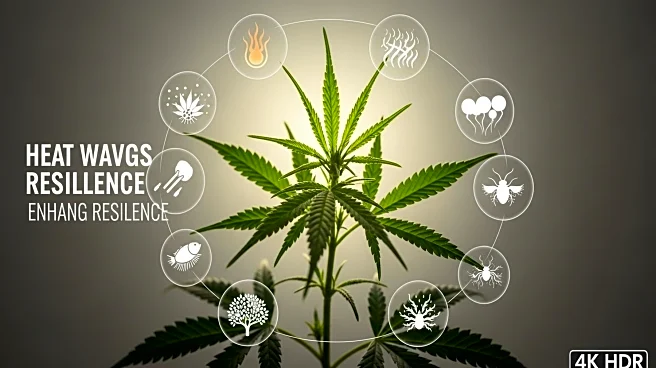What is the story about?
What's Happening?
Recent research in plant science is concentrating on understanding and improving plant resilience to multifactorial stresses such as drought, heat waves, nutrient limitations, pathogen pressure, and soil degradation. As climate change accelerates, these combined stresses pose significant challenges to forecasting plant performance and resilience in both agricultural and natural ecosystems. The research aims to dissect plant responses through biotechnological, molecular, biochemical, and ecophysiological approaches, integrating high-throughput omics, synthetic biology, advanced imaging, and systems-level modeling. This interdisciplinary approach seeks to uncover regulatory networks and metabolic trade-offs that shape plant adaptation, ultimately fostering crop resilience and ecosystem stability.
Why It's Important?
The significance of this research lies in its potential to develop climate-resilient strategies for crops and ecosystems, which is crucial as climate change continues to impact global agriculture. By identifying stress resilience markers and networks, the research could lead to the creation of new tools and predictive markers for sustainable management practices. This could benefit farmers and agricultural stakeholders by improving crop yields and reducing losses due to environmental stresses. Additionally, understanding plant resilience can contribute to food security and environmental conservation efforts, making it a vital area of study in the face of climate change.
What's Next?
Future steps involve translating laboratory findings into field performance under realistic climate scenarios. This includes developing novel ecophysiological traits and functional markers for breeding climate-ready crops. The integration of modeling, AI, and systems biology will be crucial in predicting plant responses under field-relevant stress combinations. Continued interdisciplinary collaboration will be essential to advance the understanding of plant multistress biology and accelerate the development of climate-resilient strategies.
Beyond the Headlines
The research also highlights the role of the plant microbiome in modulating physiological responses and adaptation to combined stresses. This aspect could lead to innovative approaches in enhancing plant resilience through microbiome management. Furthermore, the ethical dimension of ensuring food security and environmental sustainability in the face of climate change underscores the importance of this research.















